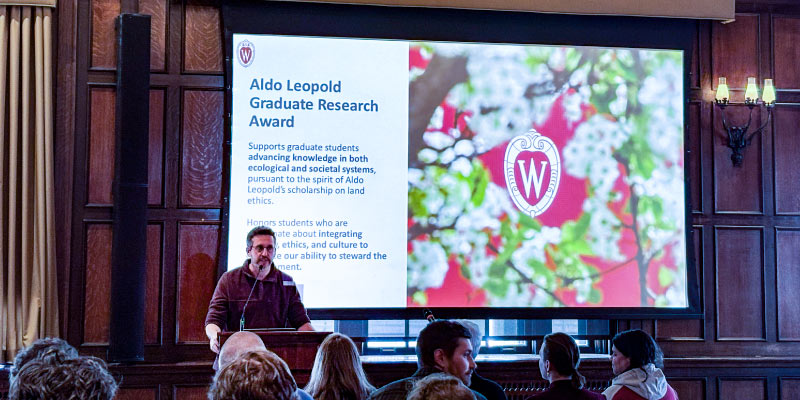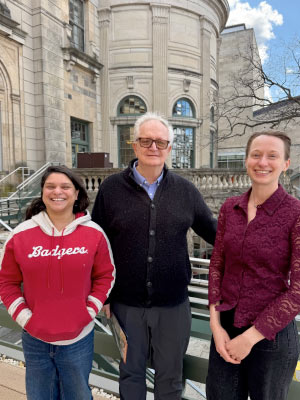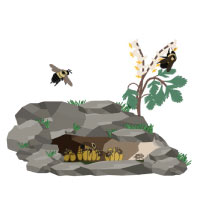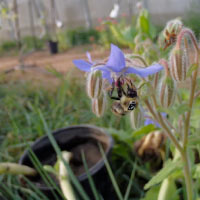 We are pleased to announce the successful conclusion of our recent event, which demonstrated an impressive turnout and diverse participation. With 136 unique registrations, we welcomed 117 attendees on Monday and 113 on Tuesday. Our participants included a dynamic mix of graduate students, faculty members, undergraduates, staff, members of the public, postdoctoral researchers, alumni, and emeriti.
We are pleased to announce the successful conclusion of our recent event, which demonstrated an impressive turnout and diverse participation. With 136 unique registrations, we welcomed 117 attendees on Monday and 113 on Tuesday. Our participants included a dynamic mix of graduate students, faculty members, undergraduates, staff, members of the public, postdoctoral researchers, alumni, and emeriti.
Our keynote speaker, Matthew Betts, shared his groundbreaking research on forest landscape ecology and biodiversity conservation. Betts is a professor in forest ecosystems and society at Oregon State University, leading the Forest Landscape Ecology Lab and serving as the lead principal investigator of the HJ Andrews Experimental Forest LTER Program. His research focuses on the influences of landscape composition on animal behavior, species distributions, and ecosystem functioning. Betts has published extensively on topics such as habitat fragmentation, forest degradation, and biodiversity loss.
 The event featured a series of insightful presentations and discussions. On Monday, Katie Klier (Departments of Bacteriology and Freshwater and Marine Sciences) commenced the sessions with her talk on microbial connectivity between deep-sea hydrothermal vents and the oxygen minimum zone. Kimberlie Vera (Department of Forest and Wildlife Ecology) followed, discussing the effects of severe drought on herbivore movement patterns, physiology, and survival in Etosha National Park, Namibia. Sarah Tolbert, the 2024 Aldo Leopold Graduate Award recipient, presented her research on creating community forest concessions to renegotiate power and development in the Eastern Democratic Republic of Congo. The day also included a research poster session and a keynote address by Betts, who explored the challenges and possibilities of conserving forest biodiversity in an age of humans. One of his key findings is that global forest loss disproportionately affects biodiversity in relatively intact landscapes. His studies have shown that even minimal deforestation in these areas can have severe consequences for vertebrate biodiversity, increasing the odds of species being listed as threatened and exhibiting declining populations.
The event featured a series of insightful presentations and discussions. On Monday, Katie Klier (Departments of Bacteriology and Freshwater and Marine Sciences) commenced the sessions with her talk on microbial connectivity between deep-sea hydrothermal vents and the oxygen minimum zone. Kimberlie Vera (Department of Forest and Wildlife Ecology) followed, discussing the effects of severe drought on herbivore movement patterns, physiology, and survival in Etosha National Park, Namibia. Sarah Tolbert, the 2024 Aldo Leopold Graduate Award recipient, presented her research on creating community forest concessions to renegotiate power and development in the Eastern Democratic Republic of Congo. The day also included a research poster session and a keynote address by Betts, who explored the challenges and possibilities of conserving forest biodiversity in an age of humans. One of his key findings is that global forest loss disproportionately affects biodiversity in relatively intact landscapes. His studies have shown that even minimal deforestation in these areas can have severe consequences for vertebrate biodiversity, increasing the odds of species being listed as threatened and exhibiting declining populations.
 Tuesday’s sessions began with Soni Ghimire (Department of Soil and Environmental Sciences), who presented on using mid-infrared spectroscopy to predict soil microbial properties at continental scale. Anupreksha Jain (Department of Entomology) discussed automating bumble bee tracking to study the sublethal impacts of pesticides on behavior, and Jassim Al-Oboudi (Department of Genetics) presented on cryptic phylo-geography in a peculiar yeast. The afternoon included another research poster session, and a second keynote by Betts, whose studies revealed intricate details about how tropical hummingbirds navigate and interact with their environment, and how plants respond to their surroundings and interact with pollinators. We were also delighted to present this year’s Aldo Leopold Graduate Research Awards to Gabriela Fleury and Tara Mittelberg. These awards are generously provided by Nelson Institute alumnus Steven Lawry PhD’88.
Tuesday’s sessions began with Soni Ghimire (Department of Soil and Environmental Sciences), who presented on using mid-infrared spectroscopy to predict soil microbial properties at continental scale. Anupreksha Jain (Department of Entomology) discussed automating bumble bee tracking to study the sublethal impacts of pesticides on behavior, and Jassim Al-Oboudi (Department of Genetics) presented on cryptic phylo-geography in a peculiar yeast. The afternoon included another research poster session, and a second keynote by Betts, whose studies revealed intricate details about how tropical hummingbirds navigate and interact with their environment, and how plants respond to their surroundings and interact with pollinators. We were also delighted to present this year’s Aldo Leopold Graduate Research Awards to Gabriela Fleury and Tara Mittelberg. These awards are generously provided by Nelson Institute alumnus Steven Lawry PhD’88.
 Looking ahead, we are excited to announce that the Center for Ecology and the Environment will hold our Fall Symposium on October 13 and 14, 2025, at Memorial Union. This event will feature talks by UW–Madison faculty who are conducting research in ecology and related fields. We are honored to welcome Barbara Han from Oregon State University and the Cary Institute as our keynote speaker. Han’s research focuses on the macroecology of disease and predicting zoonotic diseases using machine learning.
Looking ahead, we are excited to announce that the Center for Ecology and the Environment will hold our Fall Symposium on October 13 and 14, 2025, at Memorial Union. This event will feature talks by UW–Madison faculty who are conducting research in ecology and related fields. We are honored to welcome Barbara Han from Oregon State University and the Cary Institute as our keynote speaker. Han’s research focuses on the macroecology of disease and predicting zoonotic diseases using machine learning.
We extend our heartfelt thanks to the College of Letters & Science, the College of Agriculture and Life Sciences, the Nelson Institute for Environmental Studies, and the University Lectures General Fund for their generous support. The event brought together representatives from a wide array of departments and units, showcasing the interdisciplinary nature of our community. We extend our heartfelt thanks to all who attended and contributed to the vibrant discussions and networking opportunities. Your participation made this event a resounding success, and we look forward to future gatherings that continue to foster collaboration and innovation across disciplines.
Aldo Leopold Graduate Award
Congratulations to this year’s recipients of the Aldo Leopold Graduate Award, which supports students who are advancing knowledge or understanding in both ecological and societal systems, pursuant to the spirit of Aldo Leopold. The award is generously funded by Nelson Institute alumnus Steven Lawry.
Gabriela Fleury
Fleury is working towards her PhD in the Nelson Institute’s environment and resources program. With an interest in African carnivores, their research focuses on human-wildlife conflict mitigation in South Africa. Read more.
Tara Mittelberg
Tara Mittelberg is a PhD candidate in the Department of Agricultural & Applied Economics and Nelson Institute’s Center for Sustainability and the Global Environment. Her current research is on the indirect effects of cattle sector intensification in the Brazilian Amazon, as well as policies to mitigate modern slave labor.